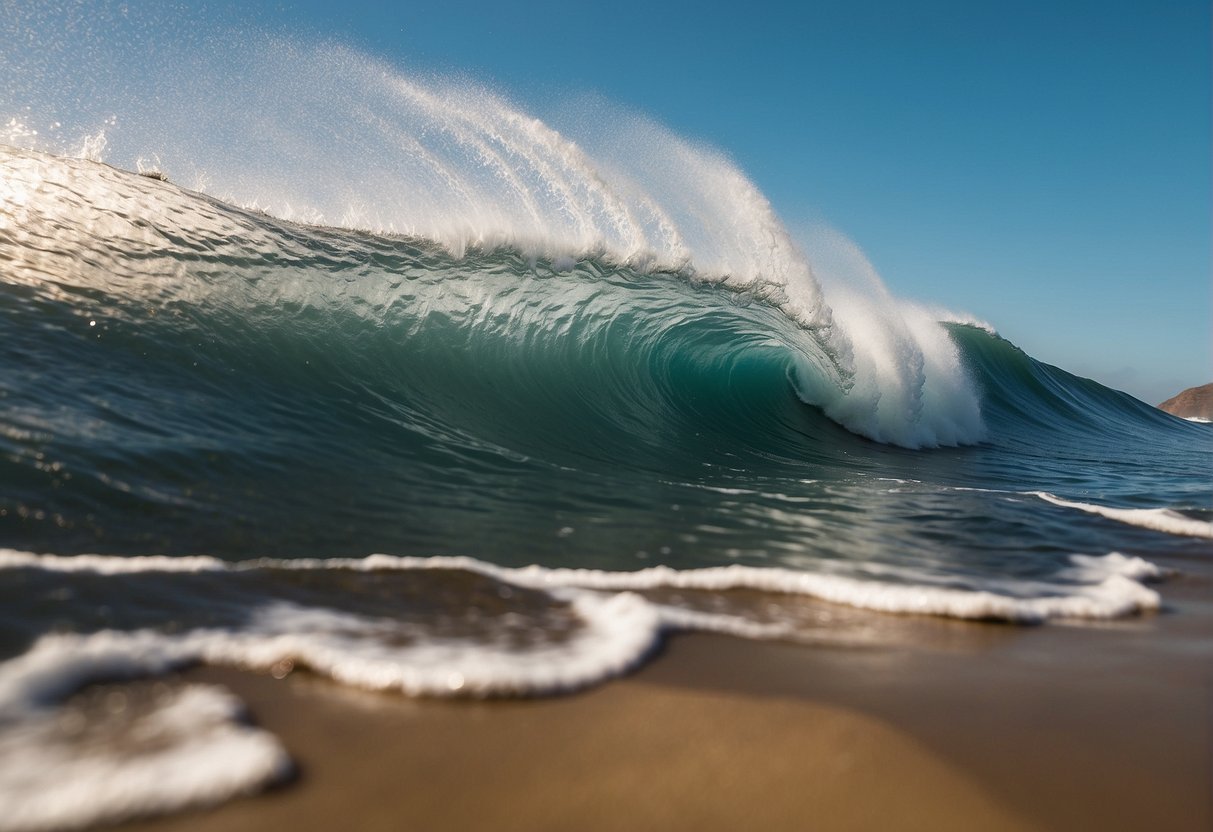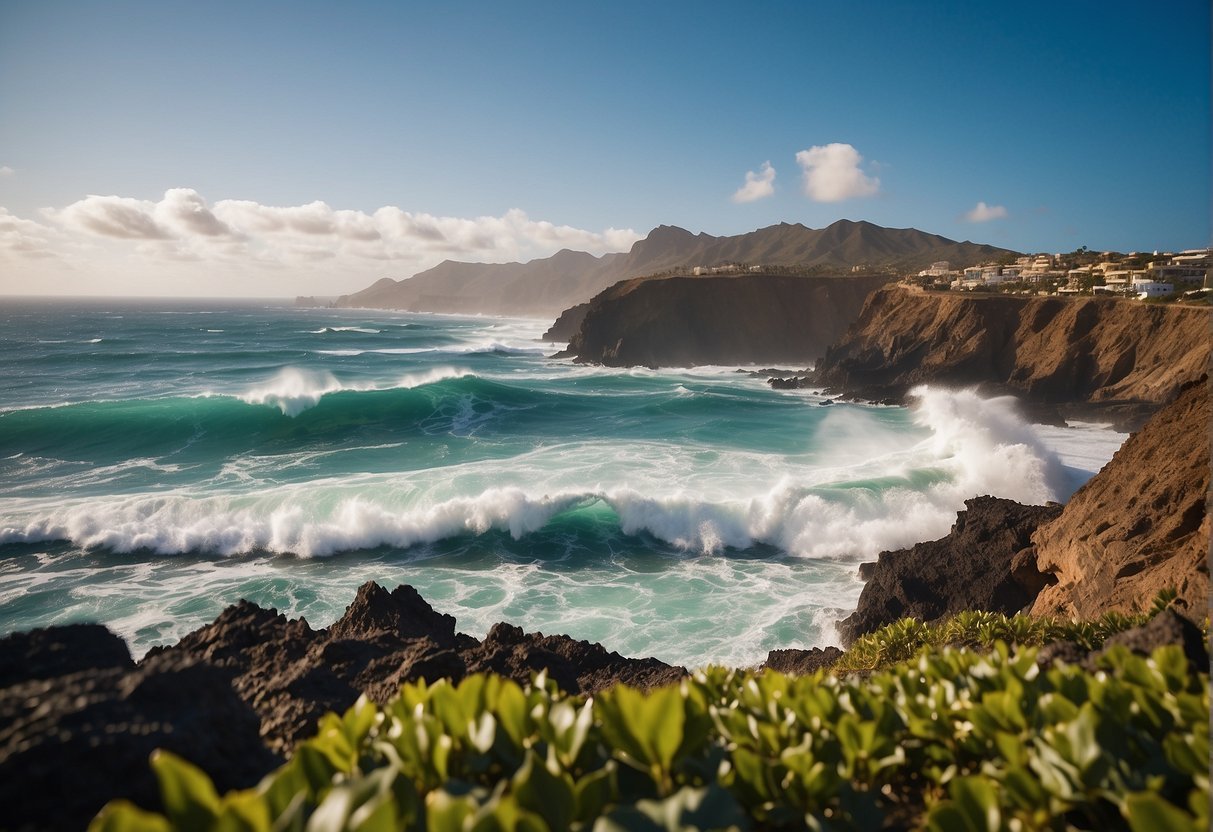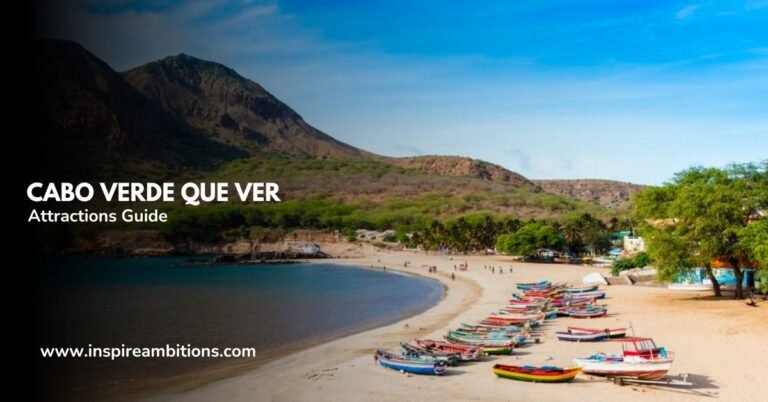Cabo Verde Surf – Un guide essentiel des meilleures vagues de l'archipel
With its prime location off the coast of West Africa in the central Atlantic Ocean, Cape Verde stands as an alluring destination for surf enthusiasts. Its ten volcanic islands offer a variety of surf conditions suitable for all skill levels, from novice wave riders to experienced surfers seeking challenging breaks.
The consistent trade winds and swells that hit the archipelago create optimal conditions for surfing, particularly during the surf season from November to March.

Each island of this African island country presents unique opportunities for surfers. Sal Island, celebrated for spots like Ponta Preta, is renowned for its perfect waves that cater to seasoned surfers, while beginners can find gentler waves at other locations on the island.
Beyond the waves, Cape Verde is also charming with its rich cultural heritage, warm weather, and vibrant music scene, making it an ideal surf trip destination combining adventure and cultural discovery.
Cabo Verde Surf – Key Takeaways
- Cape Verde offers a diverse range of surf spots suitable for all levels.
- The best surf conditions are found between November and March.
- Beyond surfing, Cape Verde’s culture and climate make it a prime destination.
Discovering Cabo Verde Surf

As you seek the perfect wave, Cabo Verde presents a prime surfing destination with varied surf spots catering to different experience levels. Here, the mystique of the Atlantic meets the harmony of the islands to offer some of the best surfing conditions.
Surfing Season and Climate
- Ideal Surfing Period: November to March
- Sea Temperature: Warm all year, ranging from 22-25°C
Cabo Verde enjoys a year-round warm climate conducive to surfing, with the peak swell season occurring between November and March. During these months, you can expect consistent swell, favourable wave conditions, and warm sea temperatures, rarely dipping below 22°C. The trade winds are more prevalent during the été, which may affect wave quality, particularly for wind-sensitive spots.
Surf Levels and Waves
- Surf Spot Diversity: Beginners to experienced surfers
- Wave Conditions: Affected by tides, swells, and wind
Cabo Verde islands boast a variety of surf spots suitable for all levels of surfers. There are gentle waves for beginners, while experienced surfers can challenge themselves with the more demanding conditions of spots like Ponta Preta, known for its powerful waves best tackled during NW swells and low tides. Considering the local surf forecast before heading out is vital, as conditions like the trade wind, tides, and sun radiation can impact the surfing experience.
With waves ranging from small to large depending on the swell and sea conditions, and with the variety of spots available, you can find the perfect surf adventure in Cabo Verde.
Top Surfing Locations in Cabo Verde
Cabo Verde is renowned for its excellent surf conditions, offering a variety of spots for every level of surfer, from beginner to more experienced. With ideal kite surfing and windsurfing conditions, the archipelago is a prime destination for wave enthusiasts.
Famous Beaches and Breaks
- Santa Maria, Sal Island:
- Santa Maria is the hub for surfing on Sal Island, boasting long beach breaks perfect for beginners.
- Le Ponta Preta surf spot, known for its world-class waves, challenges even the most advanced surfers with its powerful right-hand barrels.
- Boa Vista:
- This island is a haven not just for its scenery but also for impressive surf spots.
- Santa Monica beacBeachvides a less crowded experience with breaks that cater to various skill levels.
- São Vicente:
- Though quieter in terms of tourism, São Vicente is a gem for surfers searching for a mix of reef and beach breaks.
Secret Spots and Local Favourites
- Sal Island:
- Beyond the famous spots, Sal has secret breaks known mainly to local surfers, offering pristine conditions without the crowds.
- Boa Vista:
- This island conceals spots favoured by locals and is excellent for kite surfing and windsurfing due to the consistent winds.
- Other islands:
- Enthusiasts often find their favourite spots across the various islands of Cabo Verde, each with unique challenges and beauty.
Travel and Accommodation Tips
Quand planning your surf trip to Cabo Verde, arranging travel and finding suitable accommodation are vital steps. You must consider the best ways to reach these beautiful islands and where to stay for a comfortable and convenient surf experience.
Getting to Cabo Verde
Cabo Verde is accessible via several international airports with connections from countries such as Portugal and Senegal.
- Vols: Look for flights to Amílcar Cabral International Airport on Sal Island or Nelson Mandela International Airport on Santiago Island.
- Visas: Before booking, check whether you need a visa. Nationals of some countries can travel visa-free or obtain a visa upon arrival.
- Langue: The official language is Portuguese, so knowing a few basic phrases may help during your travels.
Staying in Cabo Verde
Accommodation in Cabo Verde ranges from resorts to hostels, fitting any budget and preference.
- Places to Stay: Consider staying near surf hubs like Palmeira on Sal Island, where you’ll find many surf-friendly lodging options.
- Devise: The local currency is the Cape Verdean Escudo, vital for local transactions. Have some cash on hand for smaller establishments that may not accept cards.
- Équipement: Some accommodations may offer surf equipment rentals, but bringing or buying your gear, including a wetsuit, ensures you’re prepared for the water.
Remember, with its African influence, the food in Cabo Verde offers a delightful culinary adventure. Enjoy the local cuisine and embrace the island’s vibrant culture.
Safety and Other Activities
When planning your surf trip to Cabo Verde, understanding the safety measures and exploring other activities available on the islands can significantly enhance your experience. Staying informed about the conditions unique to these volcanic islands and the variety of water sports and land excursions ensures a rewarding visit.
Health and Security
- Understand the Risks: Surfing in Cabo Verde can be challenging, with sharp volcanic reefs and some areas known for high winds, especially during the peak wind season from November to April, when wind force can reach strong Beaufort scales.
- Kitesurfing and Windsurfing: Kitesurfers and windsurfers frequent spots like Santa Maria Bay on Sal due to consistent conditions. However, they must be cautious of offshore winds and low tides revealing the shallow reef.
- Sharks: While the risk is low, it is wise to be aware of the possibility of sharks in the waters around the islands.
- Instructors: Always ensure you’re accompanied by a qualified instructor with a good understanding of English who can guide you on safety procedures and help you make progress safely.
Water Sports and Land Excursions
- Diverse Water Sports:
- SUP and Surfing: Stand-up paddleboarding (SUP) is a more serene way to enjoy the water, offered at different locations for all levels.
- Surfing: April is an excellent month for surfing, with milder winds, and places like Ponta Preta and Fontana are well-known spots.
- Land Based Activities:
- Discover Santiago: Explore the island of Santiago for a day when the conditions aren’t suitable for surfing or when you’re ready to take a break from the water.
- Cultural Excursions: Volcanic landscapes and the islands’ rich history provide an array of excursions. Visit the vibrant markets and historical sites, and enjoy the unique music and dance of the archipelago.
Remember to verify the size and type of your surfboards and discuss the options with your chosen activities provider, who will help you best navigate this beautiful destination.







